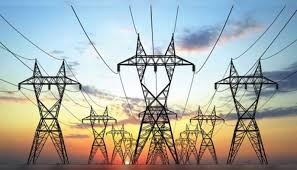


Amid widespread blackout, DisCos reject 1,769MW of electricity
Amid the widespread blackout and the worsening state of electricity supply in Nigeria, the latest figures on the daily load summary of power distribution companies indicate that the firms failed to distribute about 1,769.91 megawatts of electricity between February 1 and 14, 2024.
Data from the Transmission Company of Nigeria, obtained in Abuja showed that though some of the power firms received excess electricity load allocation during the period, most of them failed to utilise all the quantum of energy allocated to them by TCN.
Nigeria’s power situation grew worse since January this year, forcing the Minister of Power, Chief Adebayo Adelabu, to declare on Saturday that some power firms and TCN had been summoned to provide reasons for the worsening state of electricity supply in their regions.
Adelabu also pointed out that investigations by the power ministry showed that some power distribution companies were rejecting electricity, despite the scarce supply of the commodity
“Findings revealed that some distribution companies were deliberately not taking up power supply from TCN while some power lines were also damaged by vandals in Abuja, Benin, Port Harcourt and Ibadan regions,” Adelabu stated in a statement issued in Abuja.
The Minister’s position may have been justified as an analysis of the latest figures on the daily load summary of power distribution companies by our correspondent on Monday indicated that the DisCos failed to distribute about 1,769.91MW of power in the first two weeks of February.
Nigeria has 11 power distribution companies and they include Abuja, Benin, Eko, Enugu, Ibadan, Ikeja, Jos, Kaduna, Kano, Port Harcourt and Yola Discos.
On February 1, 2024, seven of the power distributors failed to utilise a total of 128.62MW of electricity, while four others including Benin, Ibadan, Port Harcourt and Yola took a cumulative excess load allocation of 61.91MW.
By taking excess load, it means the DisCo’s actual energy consumption for that particular day was higher than the load allocated to it by the Transmission Company of Nigeria.
However, the actual consumption figures of most Discos are usually lower than their allocated load, leading to unutilised or rejected energy by the power distributors.
On February 2 and 3, the Discos failed to utilise a total of 108.25MW and 71.54MW respectively, while they received excess load allocation 22.35MW and 65.45MW respectively.
On February 4, it was observed that only 4.45MW was not utilised by Kano Disco; while 327.47MW excess load was received by 10 other Discos. The low rejection of electricity on this day was due to low power generation on February 4, 2024.
On February 5, there was no rejection of electricity by any DisCo, while 211.04MW of excess load was allocated to the 11 power distributors due to the low power generation recorded on that day.
The next day being February 6, three of the power firms failed to distribute 197.32MW, while eight others received excess load allocation of 200.09MW
On February 7, four of the firms failed to utilise 216.1MW, while the remaining seven took an excess load of 162.02MW, as figures from TCN showed that the power firms rejected a total of 726.28MW of electricity in the first week of last month.
On February 8, eight power firms did not distribute 126.33MW, as three others took an excess load of 31.77MW; while the next day, nine power distributors failed to utilise 137.9MW, as the remaining two got an excess load of 39.27MW.
On February 10, nine of the DisCos rejected 185.47MW, as two others took an excess load of 22.23MW; while on February 11, eight of the firms did not distribute 142.86MW, and three others got an excess load of 60.66MW.
On February 12, eight DisCos did not distribute 132.27MW; three others received excess load allocation of 45.83MW, while on February 13, six Discos failed to utilise 133.8MW as five others took an excess load of 48.09MW.
Five power distributors rejected 179.6MW of electricity on February 14, while the remaining six of them took an excess load allocation of 83.18MW.
This shows that in the second week of February, from 8th to 14th, the power distributors did not distribute about 1,043.63MW of electricity. They, however, received excess load allocation of 330.97MW.
Worried by the poor electricity supply situation, the power minister had in a letter signed by the Director, Distribution Services at the Federal Ministry of Power, B.U Mustapha, ordered the CEOs of Abuja and Ibadan Discos, as well as TCN to attend a meeting called by Adelabu this week.
“They would discuss issues bothering on worsening electricity supply in their regions with a view to proffer a lasting solution,” a statement by Bolaji Tunji, Special Adviser, Strategic Communications and Media Relations to the minister, stated on Saturday.
Adelabu was quoted as saying that the management of other non-performing Discos would also be queried over non-performance as reports continue to filter in on the situation in their regions.
“These two Discos have been summoned due to the worsening power supply situation in their regions despite improved supply from TCN,” the power minister stated.
According to the statement, gas shortage notwithstanding, the ministry had been putting pressure on the power generating companies to improve performance and generation had been ramped up to over 4,000MW in recent days.
“So, we expect power supply to have improved across the country, unlike what we are experiencing in some regions, presently,” the minister stated.



